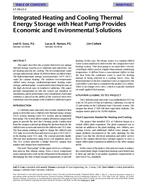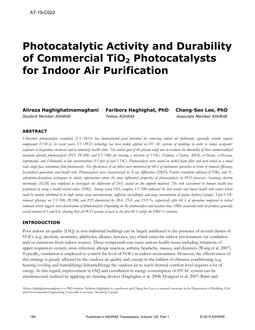Panel heating and cooling systems use temperature-controlled indoor surfaces on the floor, walls, or ceiling; temperature is maintained by circulating water, air, or electric current through a circuit embedded in or attached to the panel. A temperature-controlled surface is called a radiant panel if 50% or more of the design heat transfer on the temperature-controlled surface takes place by thermal radiation. Panel systems are characterized by controlled surface temperatures below 300°F (150°C). Panel systems may be combined either with a central forced-air system of one-zone, constant-temperature, constant-volume design, or with dual-duct, reheat, multizone or variable-volume systems, decentralized convective systems, or in-space fan-coil units. In decoupled systems, the air system provides ventilation air and meets dehumidification needs. In hybrid (or load-sharing) systems, the air system may provide significant additional capacity (e.g., where cooling loads exceed the capabilities of a radiant slab system).This chapter covers temperature-controlled surfaces that are the primary source of sensible heating and cooling in the conditioned space. For snow-melting and freeze-protection applications, see Chapter 51 of the 2015 ASHRAE Handbook—HVAC Applications. Chapter 16 of this volume covers high-temperature panels over 300°F (150°C), which may be energized by gas or electricity.
PRINCIPLES OF RADIANT SYSTEMS
Heat Transfer
Factors Affecting Heat Transfer
Panel Design
General Design Considerations
Hybrid Systems
RADIANT HEATING AND COOLING SYSTEMS
Hydronic Ceiling Panels
Embedded Systems with Tubing in Ceilings, Walls, or Floors
Electrically Heated Radiant Systems
DESIGN PROCEDURE
Controls
ISBN: 978-1-947192-53-9 (for SI versions of chapters)
ISSN: 1930-7705 (for SI versions of chapters)
Citation: 2020 ASHRAE Handbook¿¿¿HVAC Systems and Equipment
Product Details
- Published:
- 2020
- ISBN(s):
- 9781947192539
- Number of Pages:
- 21
- Units of Measure:
- SI
- File Size:
- 1 file , 1.2 MB
- Product Code(s):
- D-S062020SI


